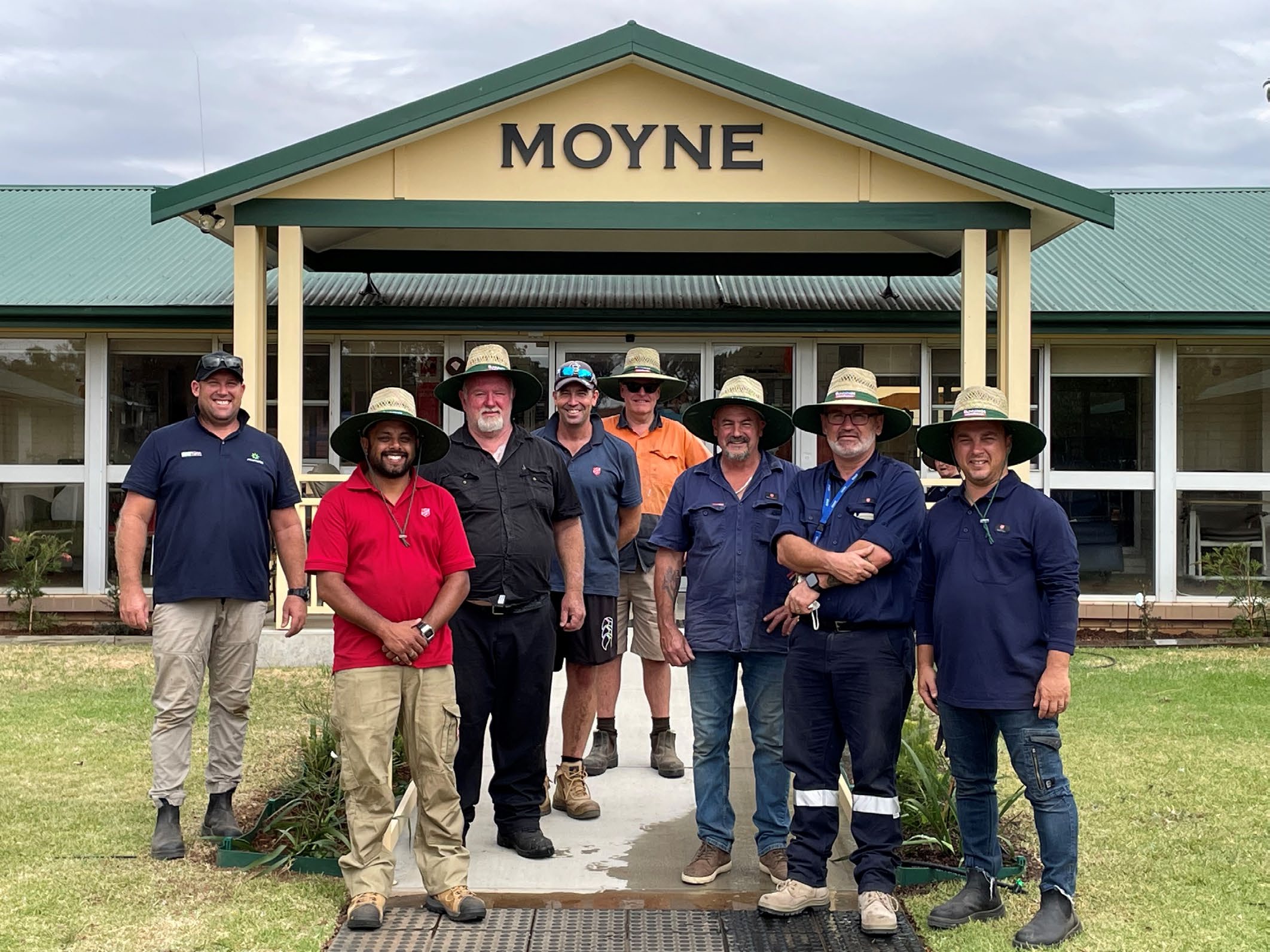Relief for consumers and businesses as the economy slows
- Economic growth to fall to just 1.5%
- Strongest wage growth in more than 10 years
- $54m overhaul of apprentice support
- $11m extension of the Defence Industry Pathways Program
- $4b industry boost for renewable energy investment
Booming commodity prices and stronger tax revenue have enabled Treasurer Jim Chalmers to deliver the first Budget surplus in 15 years and offer targeted assistance to consumers and the unemployed.
With a theme of ‘security, prosperity and growth’, the Treasurer outlined a plan to reduce inflation, keep economic growth on track, and address some of the most challenging cost-of-living issues for the unemployed and low-income households.
Growth over the next two years is expected to be the weakest in over two decades, excluding the Global Financial Crisis and the COVID-19 pandemic. The Treasurer’s balancing act will be to slow economic activity to eliminate inflation, but not so much as to bring on a recession.
The main economic pointers include:
- Real GDP growth is expected to slow to 1.5% in 2023-24, before recovering in 2024-25.
- Inflation to moderate from the current 7% but not return to the target of 2-3% until 2024-25.
- The unemployment rate is projected to rise slightly to 4.25% by mid-2024 and 4.5% by mid-2025.
- Household consumption growth is expected to slow from 5.75% in 2022-23 to 1.5% in 2023-24.
- Business investment to hold up relatively well, growing by 3% in 2022-23, thanks to a large pipeline of construction projects.
- Wages growth to reach 4% in 2023-24, the fastest since 2009.
- Budget surplus of $4.2 billion in 2022-23, the first surplus since 2007-08.
Cost-of-living measures
The government has responded to the cost-of-living crisis for many individuals and families with a $14 billion assistance package, including:
- Raising JobSeeker, Austudy and Youth Allowance payments by $40 per fortnight and lowering the age for access to the higher rate of JobSeeker from 60 to 55.
- Expanding access to the Parenting Payment by lifting the age of the youngest child from 8 to 14.
- Providing $3.5 billion over five years to make it easier to see a doctor by tripling the bulk billing incentive for GPs.
Skills and training
There was not much new in the area of skills and training but there was some added detail about the shape of a new model for delivering non-financial apprentice support.
There was also an extension of a key defence industry traineeship program, and a possible termination of the former Coalition government’s National Careers Institute.
The Budget committed $54 million over five years for the new model of apprentice support to commence next July. The model will aim to improve the quality of apprenticeships by:
- Providing every apprentice with a structured assessment on commencement;
- Enhanced mentoring services to enable earlier access to support;
- Providing more proactive support to apprentices over the course of their apprenticeship.
This plan was previously outlined by Skills Minister Brendan O’Connor in a discussion paper in late April, but the Budget puts added detail around the model.
There will also be a revamp of foundation skills, with $436.4 million over four years for a redesigned Skills for Education and Employment (SEE) program to enhance language, literacy, numeracy and digital skills.

There has been an extension of the Defence Industry Pathways Program (DIPP), with $11.4 million provided over the period 2023-24 to 2025-26. DIPP is a partnership between the Government, Programmed and South Metropolitan TAFE that provides a 12-month traineeship in the defence industry.
A total of $42.2 million will be provided over four years to implement a new digital solution to administer the VET Student Loans program.
The Government is negotiating with the states and territories on a new five-year National Skills Agreement to commence from 1 January 2024 and has promised a further 300,000 TAFE and VET fee-free places.
The National Careers Institute is to be reviewed and has been provided $5 million in funding for 2023-24 only.
In the university sector, the government is allocating 20,000 additional Commonwealth Supported Places for 2023 and 2024.
Industry support
There are a number of measures in the Budget designed to assist industry, particularly in relation to the clean economy and critical minerals. It includes:
- Investing $4 billion in renewable energy development, including $2 billion in Hydrogen Headstart, a new program to support hydrogen production.
- $38 million to establish a Guarantee of Origin scheme to underpin markets for green energy, including hydrogen and other low emissions products.
- $57 million to develop Critical Minerals International Partnerships to secure strategic and commercial partnerships.
- $14.8 million to establish the Powering Australia Industry Growth Centre, which will support Australian businesses looking to manufacture, commercialise and adopt renewable technologies.
- $392 million for the Industry Growth Program which will support Australian small- to medium‑sized enterprises and startups to commercialise their ideas.
- Establishing the Advanced Strategic Capabilities Accelerator to transform Australia’s defence innovation ecosystem to deliver advanced technologies for Australia’s national security.
- The Small Business Energy Incentive which will provide $310 million in tax relief and support up to 3.8 million businesses make investments like electrifying their heating and cooling systems.
- For small business, there is $290 million in funding for the $20,000 instant asset write‑off.
- To address the housing crisis, the government will provide rental relief in the form of a tax write-down for new build-to-rent properties and a halving of taxes on rent-to-buy buildings to 15% from 1 July 2024.
Migration reform to address skills shortages
The government is embarking on a series of reforms to overhaul the migration system, including:
- Allocating around 70% of places in the 2023‑24 permanent Migration Program to skilled migrants.
- Providing an extra two years of post‑study work rights to Temporary Graduate visa holders with select degrees.
- Increasing the Temporary Skilled Migration Income Threshold to $70,000 to ensure skilled migration settings are better targeted.
- Re-focusing two Skills Assessment Pilots to provide onshore migrants with fast‑tracked skills assessments, free employability assessments, and access to further training.
A renewed focus on infrastructure
Ahead of the Budget, the government foreshadowed a comprehensive review of the country’s $120 billion infrastructure program. The independent review will work with states, territories and local governments to prioritise which projects should proceed and which should be scrapped.
Other key measures:
- The $159.7 million urban Precincts and Partnerships Program will help transform cities and suburbs in partnership with state and local governments, community organisations and universities.
- The $211.7 million Thriving Suburbs Program will provide investment in community and economic infrastructure.
- The government has already announced $240 million for Hobart’s Macquarie Point precinct and $65 million for stadium redevelopment in Launceston.
A fine balance in economic management
The Budget papers reveal the precarious balance that underpins the whole economic outlook.
With economic growth of just 1.5% in 2023–24, it won’t take much to go wrong for that to turn negative.
And there is plenty that could go wrong – higher global interest rates in response to higher inflation, a shaky international financial system, the fallout from Russia’s invasion of Ukraine, or inflation in Australia not receding as expected.
It’s worth considering the official US economic outlook – 1% growth in 2023, .75% in 2024 and 2.25% in 2025.
It’s even worse in the euro area where the economy is forecast to grow by .5% in 2023, 1% in 2024 and 1.75% in 2025.
As the Budget papers bluntly observe, “There are significant risks to the economic outlook.”
The government believes that it has got the balance right – significantly, that it will not spend so much money that inflation will get a kick along.
“There is no evidence of a wage-price cycle developing and inflation expectations remain well-anchored,” the Budget papers say.
In fact, the government believes that inflation is falling a little quicker than expected.
This will help to deliver real growth in wages in 2024 – something that will be most welcome to wage and salary earners, and may well be the thing that prevents the economy from tipping over into recession.
Unless stated otherwise, information was sourced from the Commonwealth Budget 2023 documents, ministerial statements, media releases and portfolio papers budget.gov.au/. This is general information only and should not be taken as constituting professional advice from Programmed. Programmed is not a financial adviser. You should consider seeking independent legal, financial, taxation or other advice to check how the information relates to your unique circumstances. Programmed is not liable for any loss caused, whether due to negligence or otherwise arising from the use of, or reliance on, the information provided.
Together, Programmed and PERSOLKELLY are the leading providers of staffing, operations and maintenances services across Australia and New Zealand and one of the largest workforce solutions providers in the APAC region.
From market-leading staffing programs, to advanced people management, innovation and technology; we support your business to navigate and stay ahead of the rapidly changing world of work.
Together our experienced, capable team of problem-solvers will help you achieve more.





